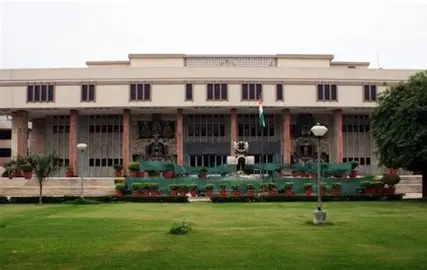
The Introduction of ePassports under PSP 2.0
It was 2025 when India made a big jump towards digitalizing the passport system when it launched far-reaching changes in the shape of the Passport Seva Programme (PSP) Version 2.0. This digital transformation, led by the Ministry of External Affairs (MEA), not only launches biometric ePassports but also upgrades passport document standards and brings in data protection features, and opens up access to services across the country.
As global travel has turned security-conscious and information-sensitive, such an enhancement places India on par with world leading standards showing a vision for safe and effective long-term world mobility.
It is based on the ePassport, a high-tech travel document that contains a Radio Frequency Identification (RFID) chip and an antenna. The technology has the owner’s biographic and biometric information, such as facial recognition and fingerprints, stored safely. The passports are ICAO standards and are protected by Basic Access Control (BAC), Passive Authentication (PA), and Extended Access Control (EAC) processes. These layers of security strive to reduce threats of passport forgery and identity theft by a large margin, rendering the travelling experience for the possessor safe.
Nationwide Rollout and International Acceptance
AFFECTIVELY rolled out on June 24, 2025, by External Affairs Minister S. Jaishankar, the launch of ePassport is an integral component of PSP 2.0. The initiative has already been rolled out in most cities like Chennai, Surat, Hyderabad, Amritsar, Jaipur, Ranchi, and so on. Also, the pilot phase of the Indian missions abroad is being implemented under the Global PSP V2.0 program, which suggests a global implementation. Notably, in Tamil Nadu alone, over 20,000 ePassports were given away in the first three weeks after the launch, reflecting the scale and speed of this exercise.
For More Updates & Regular Notes Join Our Whats App Group (https://chat.whatsapp.com/DkucckgAEJbCtXwXr2yIt0) and Telegram Group ( https://t.me/legalmaestroeducators ) contact@legalmaestros.com.
Application Procedure for ePassports
The enrollment process for ePassports has also been simplified. Candidates can register on the Passport Seva Portal then fill the online application and pay online then book biometric enrollment appointments at Passport Seva Kendras (PSKs) or Post Office PSKs (POPSKs). The biometric enrollment which verifies the document and gives it traceable, is an important step in the process. Real-time SMS notifications and electronic receipts are issued to the aspirants, which eliminate manual handling and enhance user ease.
New Regulation of Date of Birth Documentation
Another major regulatory revision in 2025 is the compulsory inclusion of a birth certificate as the only evidence of date of birth for individuals born on or after October 1, 2023. The action is intended to remove all confusion regarding verification of identity and encourage standardized methods of documentation. For all individuals born before this date, school certificates, PAN cards, and driving licenses will suffice. However, the new requirement encourages timely and formal recording of births—especially important for families with international travel needs.
From a business and mobility perspective, the shift supports the value of up-front child documentation, allowing for more seamless travel arrangements for families involved in international assignments, tourism, or education. It also helps reduce fraudulent documentation and streamlines internal HR procedures for organizations involved in cross-border operations.
Residential Address Removed for Data Privacy
In an unprecedented privacy-first step, the home address has been taken off the back of the passport and replaced with a scannable barcode. The step responds to growing fears of data abuse and identity theft. By removing visible sensitive data, the government brings passport design in line with contemporary data protection standards, raising individual privacy and institutional faith in Indian identity documents. This revision is especially useful for businesses handling large amounts of employee documents, where it is imperative to protect personal information.
Parents’ Names Erased to Encourage Inclusivity
Another significant regulatory shift in 2025 is the mandatory requirement of a birth certificate as the sole proof of date of birth for those born on and after October 1, 2023. This measure aims to eliminate ambiguity on identity verification and promote uniform methods of documentation. For others born earlier than this date, alternative documents like school certificates, PAN cards, and driving licenses will suffice. However, the new requirement encourages earlier and formal birth registration—especially relevant to families with overseas travel needs.For companies, this move facilitates inclusive hiring policies and streamlines onboarding for the entire gamut of workers.
Color-Coded Passport System Implemented
To enhance readability and speed up immigration operations, India has implemented a color-coded categorization system for passports:
• White for officials of the government
• Red for diplomats
• Blue for regular citizens (no change)
This classification provides greater visibility and operational clarity at the immigration gate. For companies involved in government contracts or foreign partnerships, this development will make coordination and travel easier for official delegations and representatives.
Enhancing Passport Infrastructure across the Country
In a bid to serve its increasing population more effectively and to eliminate backlogs in services, the MEA has proposed a large-scale expansion of the Passport Seva infrastructure, expanding the number of Post Office Passport Seva Kendras (POPSKs) from 442 to 600 by the year 2030. This will facilitate greater access to passport services for citizens of rural and semi-urban areas by minimizing the travel time and streamlining documentation procedures. India’s broader digital governance and citizen-services delivery goals are also backed by the decentralization of services.
Business and Global Workforce Mobility Consequences
Together, the Passport Rules 2025 announce India’s willingness to build on a digital-first, secure, and globally compliant identity platform. The developments are more philosophical shifts than they are technical ones toward inclusiveness, privacy, and efficiency in service. For citizens, the reforms mean quicker applications, improved security, and greater dignity in documentation.
For companies, especially those with business in travel, global trade, education, and international talent mobility, the enhanced passport system translates to a more stable and simpler system to operate in.
India’s commitment to such radical upgrading of its passport system is an indication of a progressive and responsive style of governance that acknowledges the importance of secure identity papers in a more globally interconnected world.
References:
1. India Briefing, “India’s Passport Rules 2025: Key Changes You Need to Know”, July 3, 2025
2. Ministry of External Affairs – https://passportindia.gov.in
3. ICAO – International Civil Aviation Organization Standards
4. Official Gazette Notification, Ministry of External Affairs, February 28, 2025
5. External Affairs Minister S. Jaishankar’s Public Notice on X (formerly Twitter), June 24, 2025





